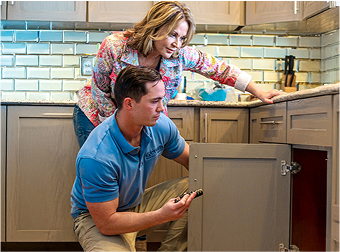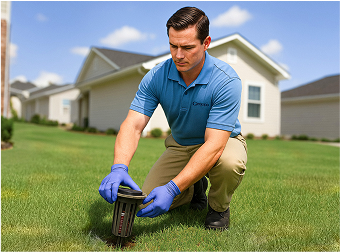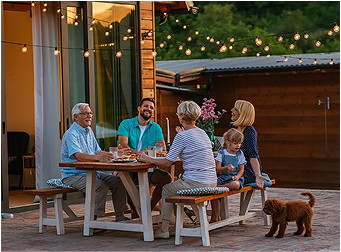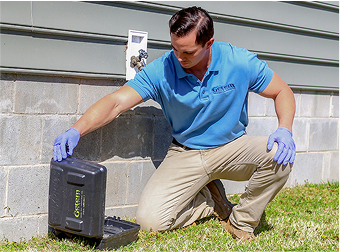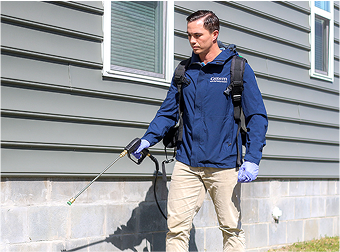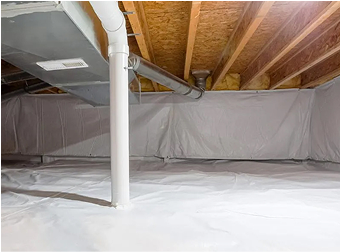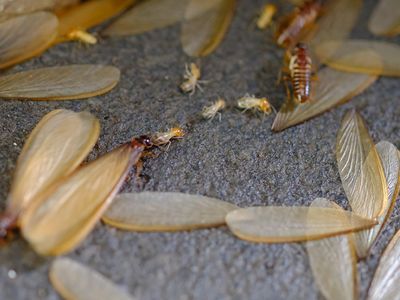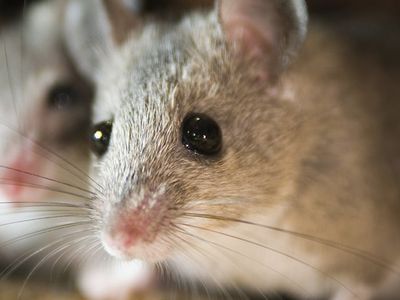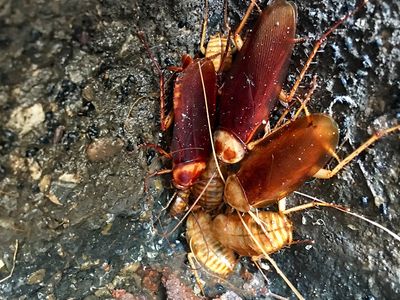Why Are Wasps More Aggressive in Late Summer?
Have you noticed wasps acting bolder lately? Maybe they’re crowding your cookout, hovering near your deck, or chasing you away from the trash can. It’s not just you. Late summer is when we start hearing from more homeowners who are suddenly dealing with wasps that seem much more aggressive than they were earlier in the season.
At Getem Services, we’ve been helping Hampton Roads homeowners eliminate wasps for decades, since 1922! We understand just how frustrating and painful these encounters can be, especially when they happen out of nowhere. Keep reading to find out what’s happening and how to avoid stinging encounters.
What This Blog Covers:
- Why wasps become more aggressive in late summer
- The types of wasps you're most likely to see in Virginia
- What attracts them to your property
- How to avoid getting stung
- What to do if you’re dealing with a nest

Why Wasps in Hampton Roads Are More Aggressive Lately
Wasp Colonies Are Reaching Their Peak
By late summer, most wasp colonies are at full capacity. Queens have been laying eggs since spring, and now their worker wasps are fully grown and out in force. That means more wasps flying around, defending the nest, and looking for food.
This time of year is also when the colony starts to shift gears. Queens stop laying eggs, and the workers have less to do, which makes them a little cranky.
With fewer tasks to focus on, the wasps become more territorial and much more likely to sting anything they see as a threat.
They’re Hungry and Craving Sugar
During the earlier part of the summer, worker wasps stay busy feeding protein to larvae in the nest. In return, the larvae secrete a sugary substance that the workers eat. Once the queen stops producing eggs, that sugary snack source dries up, and the wasps start craving sweets from other places.
Because natural food sources start to run out in late summer, wasps must find new sources; that’s why you’ll find them hovering around soda cans, fruit bowls, picnic tables, and trash bins. They’re not just being nosy; they’re looking for sugar. And if they feel challenged while scavenging, they’ll get aggressive fast.
Nests Are Harder to Avoid
In early summer, a small wasp nest might go unnoticed. But by late summer, these nests have grown significantly, and they’re often hidden in places you don’t expect, such as
- A hole in the ground
- The attic
- Inside a wall or ceiling
- Under the deck.
- In the bushes or trees
When you (or your dog or kids) accidentally get too close, wasps will act defensively. That’s why we recommend treating or removing a nest before it becomes a significant problem.
Cooler Nights, Shorter Tempers
As we head toward fall, cooler temperatures and shorter days can also affect wasp behavior. The changing conditions signal the end of the colony’s lifecycle.
- Males are kicked out
- Workers become more erratic
- The whole nest starts to break down
It’s a stressful time for the colony, and that stress shows up in how aggressive they become.
Different Wasps, Different Attitudes
In our area, we deal with several types of wasps. Here are a few of the most common species:
Yellow jackets
These wasps are the ones most people run into this time of year. They are especially aggressive when defending the nest. If you’ve ever run a lawn mower over a ground nest, you know what we’re talking about!
Paper wasps
Paper wasps build those umbrella-shaped nests under eaves or porch railings. They’re not as aggressive unless you get too close to the nest.
Hornets
Bald-faced hornets are larger than the other wasps mentioned and can be very aggressive. This is especially true if you disturb their large, papery nests, which are often found in trees or on buildings.
Knowing which kind of wasp you’re dealing with can help us come up with the best solution and help you avoid close encounters.
What Attracts Wasps to Your Property
If it feels like wasps suddenly showed up, the truth is they’ve probably been around since early spring. Back then, a single queen started building a small nest somewhere tucked away. Now that the colony is full-grown, you’re just seeing the results.
So what’s keeping them around your yard?
- Food: Wasps love protein early in the season (like scraps from the grill or pet food) and sugar later on (think fruit, soda, or anything sticky).
- Trash: Uncovered garbage cans, compost, and recycling bins with sugary residue can be wasp magnets.
- Water: They’ll drink from birdbaths, pools, plant saucers, or any place with standing water.
- Shelter: Eaves, attics, sheds, and even rodent holes in the ground all make great nesting spots.
How to Avoid Wasp Stings
Here are a few things you can do to avoid run-ins with stinging wasps:
- Cover food and drinks when eating outside
- Seal trash cans tightly
- Avoid wearing strong fragrances or brightly colored clothes outdoors
- Check for nests around your home regularly, especially under eaves, in sheds, and ground holes
- Contact us if you see increased activity or spot a nest
Contact Getem Services if You Spot Angry Wasps or a Nest
We don’t recommend trying to spray or knock down a wasp nest yourself, especially this time of year. A disturbed colony can swarm quickly, and stings can be dangerous, especially for people with an allergy to stinging insects.
At Getem Services, we have the tools and protective gear to handle wasp nests. Moreover, we offer year-round home pest control services in Virginia Beach, Chesapeake, Norfolk, and Hampton Roads that proactively target stinging insects, house-infesting insects, and rodents. We’d love to help you protect your family and home from nuisance and potentially harmful pests, no matter the season!
Don’t Let Wasps Ruin the End of Summer
Late summer is one of the best times to be outside; don’t let aggressive wasps chase you indoors. If you’re seeing a lot of wasps or have spotted a nest, call us. We’ll come take a look and help you enjoy your yard again, sting-free.



